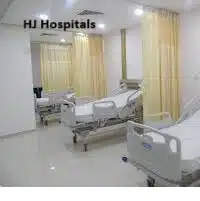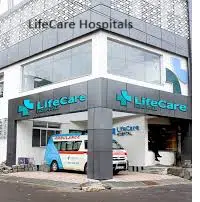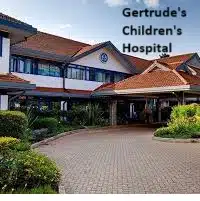
Radiation Therapy in Kenya
The cancer situation is alarming in Kenya as it is the third-largest country in Africa in leading cancer deaths. At the same time, some of the best cancer hospitals for treatment in Kenya are available. In addition, patients with private insurance and the government-sponsored scheme, National Health Insurance Fund, can undertake radiation therapy treatment in Kenya.
Radiological therapy varies from those used for detection to radiotherapy as part of cancer treatment. Radiotherapy cost in Kenya as part of the treatment routine is very costly. It charges an average of KES 31,769 per patient, with radiotherapy prices in Kenya being substantially high when used with other treatments of cancer procedures and including the cost of standard laboratory tests when undergoing the treatment.
The National Health Insurance Fund (NHIF) of Kenya reimburses some of the costs of patients but only provides for patients’ stay at the hospital. However, some best cancer hospitals in Kenya have accepted a waiver system to cover the costs of cancer treatment for poor patients. The major cancers in Kenya are breast, cervical, prostate, esophageal, and colorectal. Among these, Kenya is cervical, followed by breast, esophageal, colorectal, and prostate cancer is lethal.
Radiation Therapy Cost in Kenya
The Radiation Therapy treatment costs in Kenya are charged on the type of hospital choice and what stage of cancer. The radiation therapy costs in Kenya range from USD$2,500 to USD$10,000 dollars in addition to doctors’ charges, surgery, medicines cost, and radiation therapy.
Kenya’s average radiation therapy cost is KES 119,036 (1175.1) USD. The cost for one radiotherapy session at USD 5–10 in the hospital in Kenya.
- There are different types of pre and after-therapy radiation costs in Kenya. The biopsy charge ranges from 30,000 Ksh to 50,000 Ksh. The PET scan price is about Ksh 69,500 in Kenya.
- The CT scan price is between Ksh 5,000 and Ksh 12,000 in Kenya, while MRI scan costs range from Ksh 16,000 to Ksh 33,000.
- The endoscopy cost is divided into upper endoscopy of 30,000 Ksh – 50,000 Ksh and lower endoscopy, which ranges from 45,000 Ksh and 60,000 Ksh.
Radiation Therapy Costs in Kenya
| Radiation Therapy in Kenya | Average Cost in USD | Average Cost in Kenya Shillings (KES) |
| Radiation Oncology | $4,922 | Ksh 590,587 |
| Rapid Arc with IGRT | $5,239 | Ksh 628,690 |
| Rapid Arc with IGRT for prostate cancer | $5,318 | Ksh 638,215 |
| Rapid Arc with IMRT | $5,001 | Ksh 600,113 |
| Rapid Arc with IMRT for prostate cancer | $5,398 | Ksh 647,741 |
| Stereotactic Radiosurgery (SRS) Novalis Tx Frameless | $5,874 | Ksh 704,894 |
| Stereotactic Radiotherapy (SRS) Novalis Tx with Frame | $5,795 | Ksh 695,369 |
The different radiation therapy cost in Kenya is Radiation oncology, whose average cost is Ksh 590,587, while Rapid Arc with IGRT is Ksh 628,690 in Kenya.
The Rapid Arc with IGRT for prostate cancer average charge is Ksh 638,215, Rapid Arc with IMRT average cost is Ksh 600,113; similarly, Rapid Arc with IMRT for prostate cancer cost in Kenya is Ksh 647,741.
The Stereotactic Radiosurgery (SRS) Novalis Tx Frameless radiation therapy is Ksh 704,894, and Stereotactic Radiotherapy (SRS) Novalis Tx with Frame cost in Kenya is around Ksh 695,369.
Radiation Therapy Cost in the Cities of Kenya
| Radiation Therapy in Kenya | Average Cost in USD | Average Cost in Kenya Shillings (KES) |
| Nairobi | $4,900 | Ksh 588,000 |
| Mombasa | $5,243 | Ksh 629,160 |
| Nakuru | $5,662 | Ksh 679,493 |
| Eldoret | $6,285 | Ksh 754,237 |
| Kisumu | $7,040 | Ksh 844,745 |
The radiation therapy average cost in the cities of Kenya is Nairobi radiation therapy is about Ksh 588,000, while in Mombasa, it is charged around Ksh 629,160.
While in Nakuru, the radiation therapy cost is Ksh 679,493; in Eldoret, the radiation therapy fee is Ksh 754,237; and in Kisumu, the radiation therapy price is Ksh 844,745.
Overall, radiation therapy costs in Kenya and treatments may vary on many factors, including the cancer type, the treatment choice, the length of therapy, and location.
NHIF Radiation Therapy Costs in Kenya
NHIF covers around KES 3,600 for each session of Radiotherapy in Kenya. The National Hospital Insurance Fund provides basic health insurance in Kenya and allows affordable and quality health services NHIF to get universal healthcare in Kenya.
| Radiation Therapy in Kenya | Average Cost in USD | Average Cost in Kenya Shillings (KES) |
| Radiation Oncology | $5,422 | Ksh 630,587 |
| IGRT and Rapid Arc | $6,139 | Ksh 718,690 |
| IGRT and Rapid Arc for Prostate cancer | $6,118 | Ksh 718,215 |
| IMRT and Rapid Arc | $6,101 | Ksh 700,113 |
| Rapid Arc and IMRT for prostate cancer | $6,298 | Ksh 717,741 |
| Frameless and Stereotactic Radiosurgery (SRS) Novalis Tx | $6,374 | Ksh 814,894 |
| Frame and Stereotactic Radiotherapy (SRS) Novalis Tx | $6,795 | Ksh 725,369 |
What is the NHIF penalty?
The self-employed get a 50% NHIF penalty charge following late payment. For example, if a person contributes Ksh 500 each month, he must pay Ksh 750 for late payments.
What is Radiation Therapy?
Radiation therapy or radiotherapy is cancer treatment where high doses of radiation are given to kill cancer cells and lessen the size of tumors. At low doses, radiation therapy is delivered to see via x-rays inside the body, such as x-rays of teeth or broken bones.
This treatment does not kill cancer cells instantly, but it takes many days or weeks of radiation therapy treatment for cancer cells to kill in the body. Radiation Therapy is divided into three main parts:
- External beam radiation therapy (EBRT or XRT) or teletherapy: In this, the machine directs high-energy rays from externally in the body where the tumor is present. It is given for several weeks and often given twice a day for some weeks.
- The brachytherapy or sealed source radiation therapy: In this therapy, the radioactive source is put near the tumor in the body. Then, radiation is positioned and left inside the body for a while, and the after detection of the tumor it is removed.
- Systemic radioisotope therapy or unsealed source radiotherapy: Radioactive medicines are put into the mouth or given to a vein. These drugs then travel all over the body. Therefore, patients must follow special precautions at home for some time when medicines are given to them.
Different Types of Radiation Therapy in Kenya?
There are some types of radiation therapies are used to treat cancers in Kenya:
- Radiation Oncology: It uses high-energy x-rays and is sent through a linear accelerator. These invisible x-rays are painless and treated for many different cancer treatments. The purpose of this therapy is to treat cancer, control the progress of cancer or lessen the symptoms of cancer pain.
- Rapid Arc with IGRT: Image-Guided Radiotherapy (Rapid Arc) worked in frequent tumor imaging. It improves the accuracy and target of the tumor treatment. In addition, it uses shorter treatment times than other external beam radiation therapy procedures. IGRT makes use in the cancers of the lungs, liver, pancreas, prostate gland, and tumors near the critical organs and tissues.
- 3D conformal radiation therapy (3DCRT): This uses 3-dimensional scans to know the particular shape and size of the tumor. It reduces the side effects on nearby healthy tissues. It helps treat several cancer types of cancers such as cancer of the brain, head and neck, liver, lung cancer, and prostate.
- Rapid Arc with IMRT: Intensity-modulated radiation therapy (IMRT): This therapy sends multiple radiation beams straight to the tumor. When the tumor is very close to the normal organ, it is used and treated for prostate cancer treatment.
- Volumetric modulated arc therapy (VMAT): In this therapy, several radiation beams of different intensities are used. When the therapy machine rotates, radiation is passed through every angle. Its goal is to give the maximum dose of radiation to the tumor while lessening the effect of radiation on healthy organs. VMAT can be used to cure some types of solid tumors, like prostate, liver, and pancreatic cancer.
These are types of internal radiation therapy include those are:
- Brachytherapy: Involves radioactive material is put inside the body and used for the treatment of prostate, breast, cervical, endometrial, and vaginal cancers.
- Intraoperative radiation therapy (IORT): IOT can treat visible tumors during cancer surgery. It sends a high dose of radiation to a visible operated area and nearby healthy organs and tissues shielded by lead. This therapy treats specific gastrointestinal and other cancers that are difficult to remove in surgery.
- Stereotactic radiosurgery (SRS): In this, dozens of small doses of radiation beam passed to cure tumors in the head and neck with only one radiation dose and some other tumors. It is of two types commonly used.
- Stereotactic Radiosurgery (SRS) Novalis Tx Frameless or with Frame: It uses highly focused, a large single dose of radiation for precise x-ray beams for the treatment. 3-dimensional imaging capabilities are used for the accurate targeting of brain tumors.
External radiation therapy includes the following types:
- Proton therapy: A beam of proton radiation is used directly on the tumor. This beam conforms to the form and deepness of a tumor while saving healthy tissues and organs in the body. It cures the cancers of the prostate, esophagus, lung, head and neck, liver, and brain cancers, in addition to treating lymphoma, pediatric cancers, and some other rare tumors.
- MRI linear accelerator: Real-time radiations employ to track soft tissue-based tumors. It is given for multiple cancer types with a soft tissue component, like head, neck, and gastrointestinal cancers.
- Stereotactic body radiation therapy (SBRT): The more precise target and a narrower beam of radiation worked and technique for lung cancer, pancreatic cancer, liver cancer, and cancers that have spread in the bones.
Factors to Choose Radiation Therapy
- The kind of cancer one has
- What size is the tumor?
- How near is the tumor location in the body
- how near is the tumor to healthy tissues that are sensitive to radiation therapy?
- your overall health and medical conditions such as age
- any other types of cancer treatment you have
What to Expect Before Radiation Therapy?
The doctors and dieticians recommend a special diet before, during, and after radiation therapy. Eating enough calories and protein may be suggested to have good energy and weight during treatment.
What to Expect During Radiation Therapy?
CT scans or X-rays are performed to find the full extent of cancer, where to do the radiation, and ascertain the best location for radiation therapy. The oncologists also decide the dose and radiation frequency and are suitable for the cancer type and stage. It can take place several days a week for multiple weeks. The person is off from radiation therapy every weekend, which helps bring back the normal cells.
What to Expect After the Treatment?
Reviews and follow-ups with your oncologists often monitor and see how to deal with any side effects during the treatment process. Once radiation therapy ends, talk to your radiation oncologist to find out if cancer has responded to treatment or not.
Advantages of Radiation Therapy
These are as follows:
- It kills all cancer cells
- Reduces the size of the tumor
- The reoccurrence of cancer is prevented.
- It helps in subsiding the cancer symptoms
Side Effects and Risks of Radiation Therapy
Radiotherapy can cause side effects are:
- -Sore and redness in the skin
- -Weakness
- -Hair fall
- -Feeling sick for a short time during radiotherapy treatment sessions.
- -Loss of appetite, a sore mouth, loss of appetite, weight loss, uneasiness when swallowing food
- -Diarrhea
- -Stiff joints and muscles
- -Fertility issues
- Emotional issues
- -Lymphoedema
- -Risk of getting another type of cancer
Radiation Therapy Kenya Reviews
- Kenya provides an affordable cost for radiation therapy for several cancer treatments.
- There are JCI-accredited hospitals to provide advanced radiation therapy.
- The latest medications and modern technologies are available for a variety of diseases.
- Kenya provides board-certified surgeons and a highly trained medical team with multiple specialties.
Radiation Therapy Kenya Success Rate
Radiation therapy has achieved a 90% – 95% success rate in stage 1, an 85 – 90% success rate in stage 2, and stage 3 has a 75% – 80% success rate. Patients require to attend all the follow up for three months.
Best Cancer Hospital in Nairobi?
Kenya provides the best cancer hospitals with the necessary treatments and support for cancer patients. All the hospital has a multi-disciplinary team of oncologists and provides the highest quality care for cancer in the East African region. Other facilities include quality care for cancer investigation nursing, treatment, surgery, rehabilitation, and supportive care for various cancer. Please contact us to find a radiation therapy specialist in Kenya.
How Many Months is Radiation Therapy?
Every radiation therapy treatment takes around 10 minutes. Radiation therapy to cure cancer is commonly delivered daily and weekly for 5-8 weeks.
Summary of Radiation Therapy in Kenya
Radiotherapy is an essential characteristic of both therapeutic and palliative cancer treatment. The effects of radiation therapy are usually visible within 1 to 3 weeks, and it has very few side effects that are mild to moderate. However, it may take weeks or months for some people to react to the cancer treatment.
FAQs of Radiation Therapy in Kenya
- Who can provide Radiation therapy treatments?
– Radiation oncologist, Radiation physicist, Radiation therapist or radiation therapy technologist, and Dosimetrist
- What food should be avoided in radiation treatment?
– Keep away from raw vegetables, fruits, and other hard, dry foods such as chips, salty, spicy, or acidic foods
- Should one avoid a shower after radiation treatment?
-Shower daily with lukewarm water. Strictly avoid the direct shower on your treated area.
- What kind of clothes should one wear?
– Wear loose and soft cotton clothes in the area where it is treated and stay away from stiff or tight clothing.
- Does a patient walk after radiation therapy?
– Do gentle exercises that are comfortable for you, like walking, gentle stretching, and yoga.





